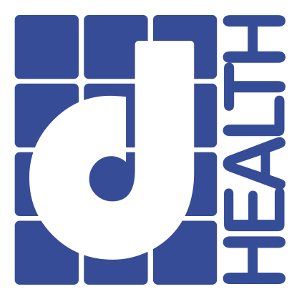Workshop 3.4 – Telehealth Applications for Aging Well – Existing Solutions, Best Practices and Future Challenges (AAL Austria)
Wednesday, May 29th 2019, 09:00-10:30
Background
The society in general and the health care sector in particular is facing challenges due to demographic processes and changes in Europe. Examples are the continuously growing share of older people, the increasing urbanization, and as a result of that, a depopulation in rural areas. Besides the impact on various economical aspects, the shrinking and ageing rural areas face challenges in flexible mobility services, fast internet and adequate health care services (Brigitte Mohn, CEO of the Bertelsmann Stiftung). Focusing on the healthcare sector, there is a need of innovative ways to combine cost-efficiency with increased availability of care services [1].
One important initiative to meet these demands is ‘DG Health and Food Safety’s European Innovation Partnership on Active and Healthy Ageing’ (EIP AHA) with different action groups and initiatives like ‘Lifespan Health Promotion & Prevention of Age Related Frailty and Disease’ focusing on food and nutrition, physical activity, frailty and functional decline, cognitive function and caregivers [2]. One horizontal initiative of the EIP AHA identifies most important health and care needs of the population, and elaborated four related key topics. These are a) data analytics for predictive risk stratification and prevention, b) proactive prevention through empowerment, self-management, monitoring and coaching, c) digital solutions for connected health and d) digital support for integrated care [3]. Telehealth services and the use of advanced information and communication technologies (ICT) are one way for facilitating integrated care. Additionally, they could be a solution to address the growing depopulation in some (especially rural) areas. Telehealth refers to the use of ICT to provide healthcare services at a distance and includes the transmission of communications, images and health informatics data between patient and health professional [1]. In addition to a medical focus, telehealth solutions and services support healthy lifestyle, (risk) prevention, management of (chronic) diseases, therapy applications or rehabilitation.
In recent years, many national and European research projects have been launched, aiming at developing telehealth solutions to support healthy ageing. This includes projects addressing the different fields from prevention to rehabilitation, the development of technical solutions and service models, targeting different primary user groups and linked entities like coaches, caregivers, nurses, medical doctors and therapists. Complementary to that, extensive research and development regarding the technical issues of telehealth solutions like mixed reality approaches data security, privacy as well as legal issues were conducted to create highly motivating, useful, integrated in daily life and well accepted telehealth solutions with integrated services to support health lifestyle, prevention, management of (chronic) diseases or rehabilitation processes.
This workshop will provide an overview of respective Austrian Active & Assisted Living projects and technical approaches, followed by a discussion regarding actual and future challenges of deployment of such solutions.
1) The impact of demographic change on European regions: https://cor.europa.eu/en/engage/studies/Documents/The%20impact%20of%20demographic%20change%20on%20European%20regions/Impact_demographic_change_european_regions.pdf
2) European Innovation Partnership on Active and Health Ageing: https://ec.europa.eu/eip/ageing/actiongroup/index/a3_en
3) Blueprint initiative: https://ec.europa.eu/eip/ageing/blueprint_en
Agenda
Part 1: Presentations (60 Min.)
- Welcome and Introduction
- Promoting an active lifestyle: Integration of telecoaching in ILSE (Verena Venek, Salzburg Research Forschungsgesellschaft mbH)
- Health Management and an integrated Health Care Center Model – Implementation concept and Interim Result within the Austrian Pilot Region Smart VitAALity (Daniela Krainer, Fachhochschule Kärnten gemeinnützige Privatstiftung)
- Activating Motivational Resources and Multimodal Stimulation in Dementia Using Serious Games, Playful Training and Social Robot based Coaching (Lucas Paletta, Joanneum Research Forschungsgesellschaft mbH)
- Mixed reality for healthy aging – opportunity or hype? (Cornelia Schneider, Fachhochschule Wiener Neustadt GmbH)
Part 2: Panel Discussion (30 Min.)
Moderated Panel discussion on the following key topics:
- Potentials and Limitation of Telehealth Solution
- User or Usage Barriers
- Service Models
Organizers
- Daniela Krainer, Fachhochschule Kärnten gemeinnützige Privatstiftung
- Maria Fellner, Joanneum Research Forschungsgesellschaft mbH
- Cornelia Schneider, Fachhochschule Wiener Neustadt GmbH
- Markus Garschall, AIT Austrian Institute of Technology GmbH
- Uli Waibel, AAL Austria
This workshop is co-organized by the Austrian innovation platform AAL Austria (http://www.aal.at).
